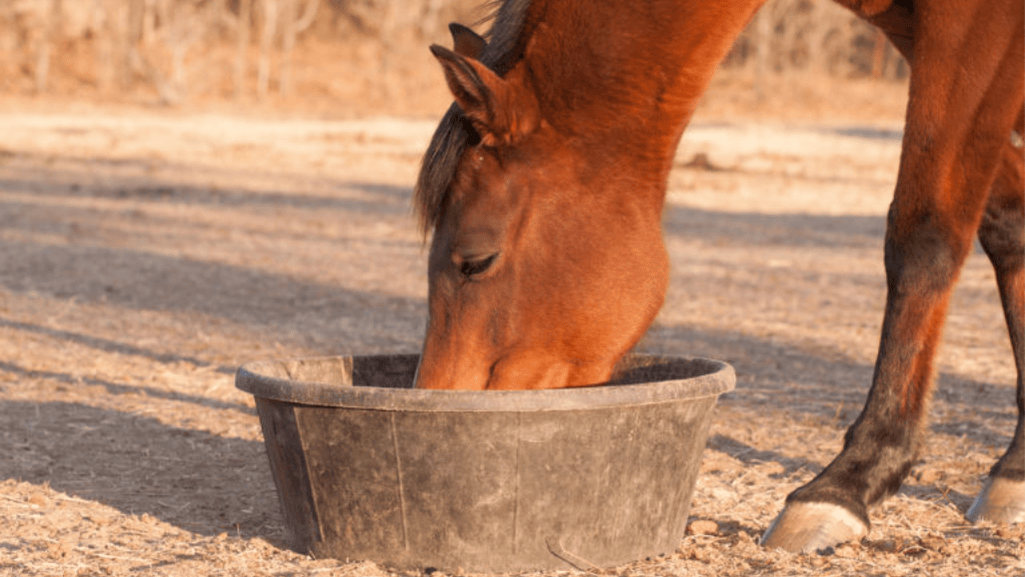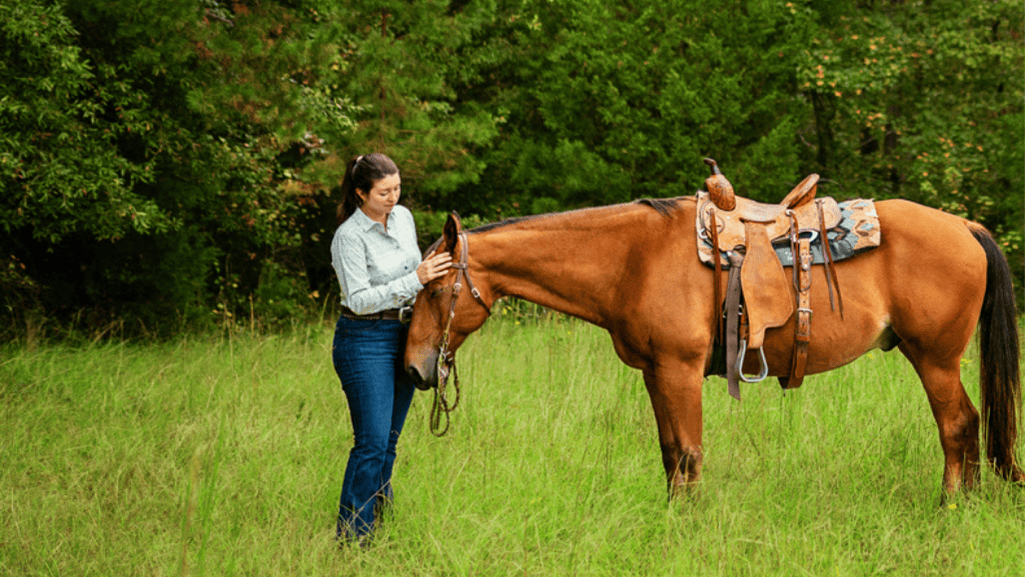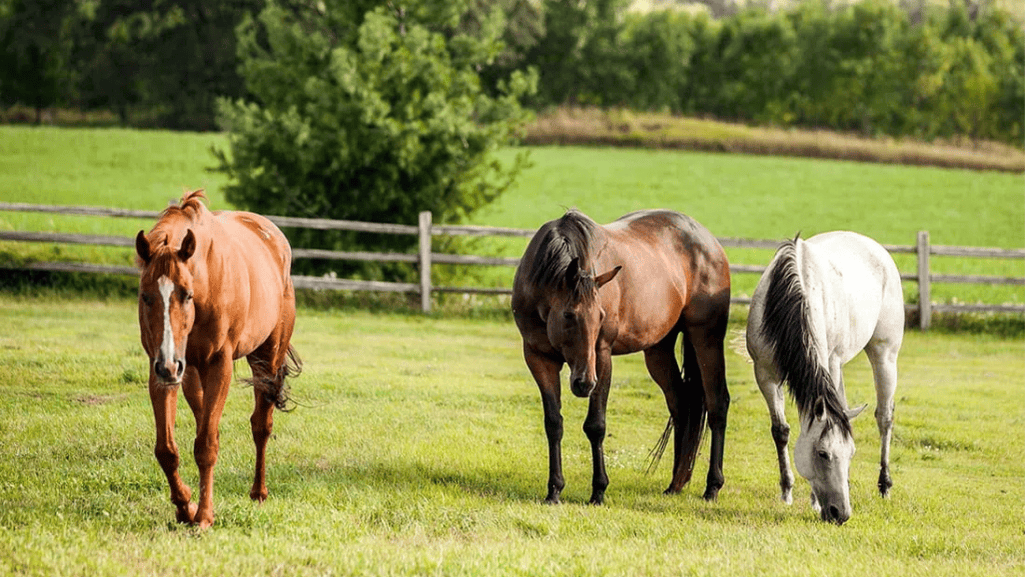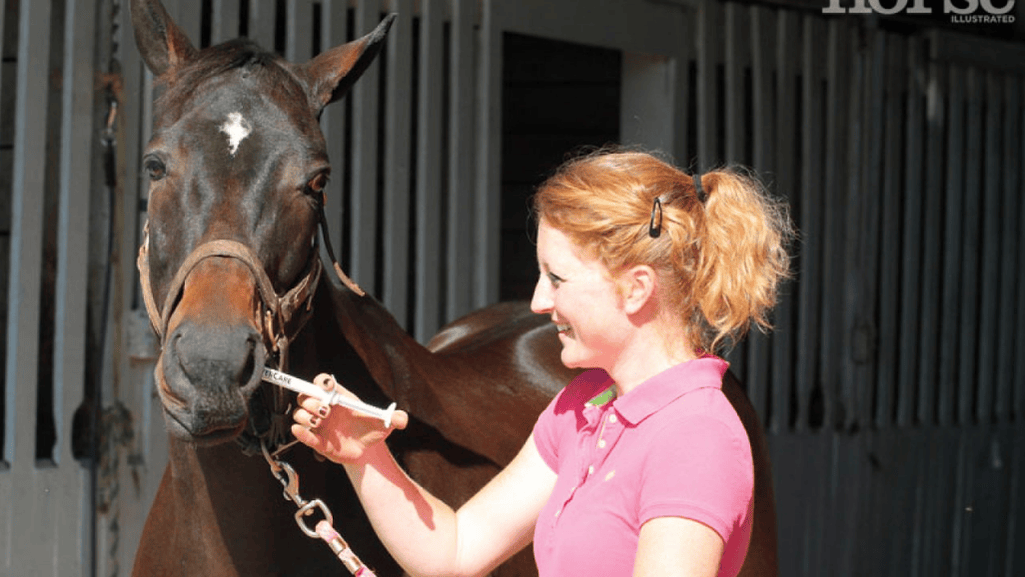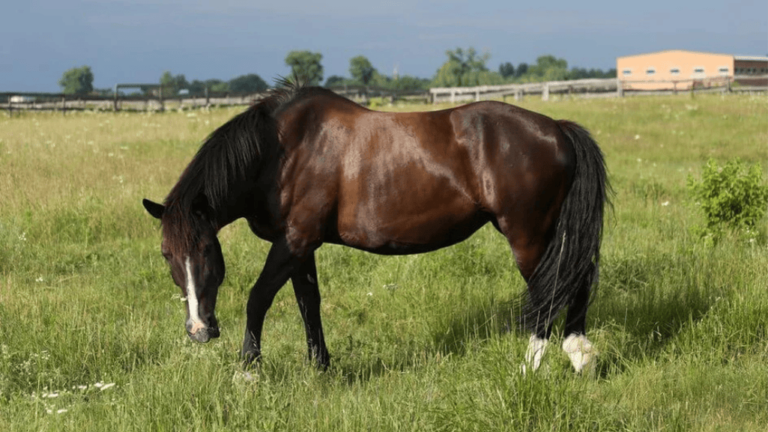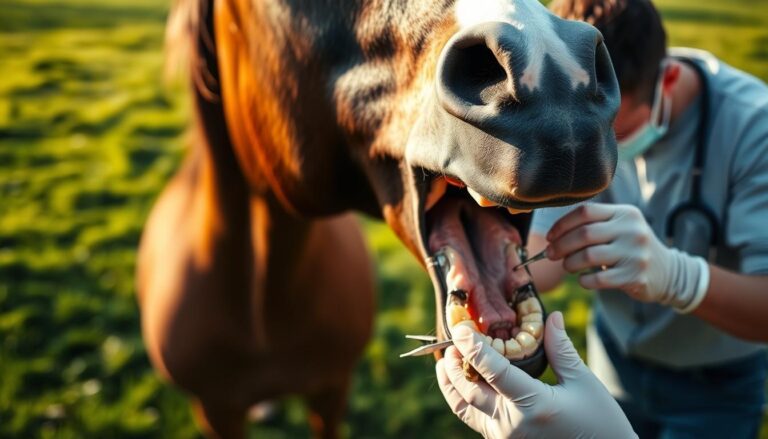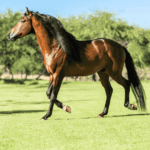Keeping your horse healthy is very important. Deworming is a key part of horse care. With many dewormers out there, picking the right one can be hard. We’ll look at the best horse deworming products, their ingredients, and expert advice to help you choose.
Deworming is vital to protect your horse from parasites. These parasites can lead to health problems like weight loss and colic. Knowing the different dewormers and their uses helps you pick the best one for your horse.
When picking a dewormer, think about your horse’s age, health, and exposure to parasites. Young horses need deworming more often because they’re more vulnerable. Adult horses, with their stronger immunity, may need deworming less often.
Testing your horse’s feces can tell you how well they fight parasites. Horses are classified as low, moderate, or high shedders based on their fecal egg count. This helps you decide how often to deworm and which product to use.
Choosing a dewormer means looking at price and formulation. Dewormers cost between $8.69 and $22.07. Options like Panacur EQ Dewormer and Quest 2% Equine Oral Gel are effective and affordable. It’s important to find a dewormer that’s within your budget but also effective.
In this article, we’ll explore the different dewormers, their ingredients, and the best ones available. By the end, you’ll know how to pick the best dewormer for your horse. Remember, a good deworming program is worth it for your horse’s health and happiness.
Key Takeaways
- Regular deworming is key for horse health and parasite prevention.
- Age, immunity, and shedding rates are important when choosing a dewormer.
- Fecal egg count tests help determine deworming schedules.
- Dewormers vary in price and formulation, with options for all budgets.
- Choosing an effective and trusted dewormer is vital for your horse’s health.
Understanding Equine Parasites and the Need for Dewormers
Equine parasites are a big worry for horse owners. These internal invaders can lead to health problems if not handled right. It’s key to know the different parasites, their risks, and why regular deworming is vital for horse health.
Common Internal Parasites in Horses
Horses face many internal parasites, including:
- Small strongyles (cyathostomins)
- Large strongyles (bloodworms)
- Tapeworms (Anoplocephala perfoliata)
- Ascarids (roundworms)
- Pinworms (Oxyuris equi)
- Bots (Gasterophilus spp.)
Each parasite can cause different health issues. For example, large strongyles can cause fever, diarrhea, and weight loss. Small strongyles might lead to anorexia, diarrhea, and severe underweight.
Health Risks Associated with Parasite Infestations
Parasite infestations can cause many health problems in horses. The type and severity of the infestation determine the risks. Some common issues include:
- Colic: Studies show that 80% of colic cases in horses are related to parasites, with larval strongyles being the main cause in adult horses.
- Weight loss and poor growth: Parasites can interfere with nutrient absorption, leading to weight loss and stunted growth, in young horses.
- Diarrhea: Some parasites, such as small strongyles and ascarids, can cause diarrhea, which can lead to dehydration and electrolyte imbalances.
- Anemia: Heavy parasite loads can cause anemia, as some parasites feed on blood or damage the intestinal lining, leading to blood loss.
Importance of Regular Deworming
Regular deworming is key for controlling equine parasites and keeping horses healthy. By using dewormers wisely, owners can:
- Reduce parasite loads and minimize the risk of health issues
- Slow the development of parasite resistance to dewormers
- Identify and target high egg shedders for more effective treatment
- Maintain a healthy environment by reducing pasture contamination
The American Association of Equine Practitioners (AAEP) recommends that parasite control programs should minimize the risk of parasitic disease and avoid the development of anthelmintic resistance.
To meet these goals, the AAEP suggests regular fecal egg counts, fecal egg count reduction tests, and targeted deworming for moderate to high egg shedders. By working closely with veterinarians and implementing a strategic deworming plan, horse owners can effectively manage equine worm control and promote optimal horse health.
Types of Equine Dewormers
Protecting your horse’s health is key. Knowing about different dewormers is important. There are three main types: benzimidazoles, pyrimidines, and macrocyclic lactones. Each targets specific parasites, so picking the right one is vital.
Benzimidazoles (Fenbendazole/Oxibendazole)
Fenbendazole is a benzimidazole used to fight parasites in horses. It works against many types of worms. But, it’s facing resistance, making it less effective in some cases.
Pyrimidines (Pyrantel)
Pyrantel is a pyrimidine dewormer. It paralyzes worms, helping them pass through the horse’s system. It’s often used with other dewormers for better protection.
Macrocyclic Lactones (Ivermectin/Moxidectin)
Macrocyclic lactones, like ivermectin and moxidectin, are very effective. Ivermectin fights adult and immature large strongyles. For heavy infestations, it’s given every three weeks for three times.
Moxidectin lasts longer, allowing up to 120 days between treatments. It’s great against small strongyles, which are common and resistant to many dewormers. But, it’s the least safe and can also develop resistance.
There’s also praziquantel, a minor class drug for tapeworms. It’s often mixed with main class dewormers. The mix of ivermectin and praziquantel is good against tapeworms and many parasites.
Creating a worm control plan for each horse is essential. It should match the horse’s weight and needs. Talk to your vet to find the best deworming plan for your horse.
Top-Rated Equine Dewormers on the Market
Choosing the right dewormer is key to your horse’s health. There are many top-rated equine dewormers out there. Let’s look at some of the most popular and effective ones.
Ivermectin Paste 1.87% for Horses
Ivermectin Paste 1.87% is a single-dose dewormer and boticide. It targets a wide range of parasites. It’s easy to give to your horse and is very effective against strongyles, pinworms, and other parasites.
Quest Plus Equine Oral Gel
Quest Plus Equine Oral Gel is a top choice. It has moxidectin and praziquantel. This formula fights internal parasites and tapeworms, common in horses on green pastures. It’s easy to dose and protects for a long time.
“I’ve been using Quest Plus for my horses for years, and I’ve seen a significant improvement in their overall health and performance. It’s easy to administer and provides complete protection against many parasites.” – Sarah, experienced horse owner
Panacur Equine Dewormer Paste
Panacur Equine Dewormer Paste is a trusted option. It has fenbendazole and fights many parasites. It’s tasty, making it easy to give to even picky horses.
Zimecterin Gold Paste
Zimecterin Gold Paste is a single-dose dewormer. It removes roundworms, tapeworms, and bots. It’s very potent and protects for a long time. It’s great for horses in warm climates.
When picking a dewormer, think about the parasites, your horse’s age and health, and how easy it is to give. Always talk to your vet to make sure you’re using the right dewormer for your horse. They can help you create a deworming plan.
By picking one of these top-rated equine dewormers and following a deworming plan, you can keep your horse healthy and happy. Always talk to your vet to make sure you’re using the best dewormer for your horse. For more info on equine health and deworming, visit PetMD’s guide to horse dewormers.
Best Equine Dewormer: Factors to Consider
Choosing the right dewormer for your horse is key. You need to think about several things. Look at the dewormer’s effectiveness against parasites, its safety, how easy it is to give, and its cost. These factors depend on your horse’s needs and how often you deworm.
Spectrum of Activity
When picking a dewormer, look at what parasites it fights. Different dewormers target different parasites. It’s important to pick one that matches the parasites in your horse’s area. Talk to your vet and do fecal egg counts to find the right one.
Safety and Side Effects
It’s also vital to consider a dewormer’s safety and side effects. Most dewormers are safe, but some horses might react badly. Always check the label and talk to your vet. Make sure it’s right for your horse’s health and age.
Ease of Administration
How easy it is to give the dewormer matters too. Dewormers come in different forms, like pastes, gels, or suspensions. Pastes and gels, like Quest Plus Equine Oral Gel, are easy to use. Suspensions might be better for horses that don’t like pastes or gels. Think about your horse’s personality and your comfort level.
“Moxidectin is advised for its effectiveness in killing encysted strongyles that live in the gut wall and should be part of at least one of the minimum twice-yearly dewormings.”
Cost-Effectiveness
Cost is also a big factor. You want a good product, but it should fit your budget. Some dewormers, like Ivermectin Paste 1.87% for Horses, are affordable and effective. Others, like Zimecterin Gold Paste, might cost more but offer extra benefits. Assess your horse’s risk factors to find the best value for your situation.
Conclusion
Choosing the best equine dewormer is key for your horse’s health. It’s important to consider your horse’s age, parasite load, and health. Working with a vet to create a deworming plan is essential.
Regular fecal egg count tests are vital. They help find high shedders and decide if deworming is needed. This makes deworming more effective.
When picking a dewormer, look at its spectrum, safety, ease of use, and cost. Rotating dewormers helps avoid resistance. Deworming based on fecal egg counts and seasons is better and saves money.
Good farm management is also important. Keeping the right number of horses and cleaning pastures helps. A complete plan that includes deworming, monitoring, and farm care is best for your horse.


